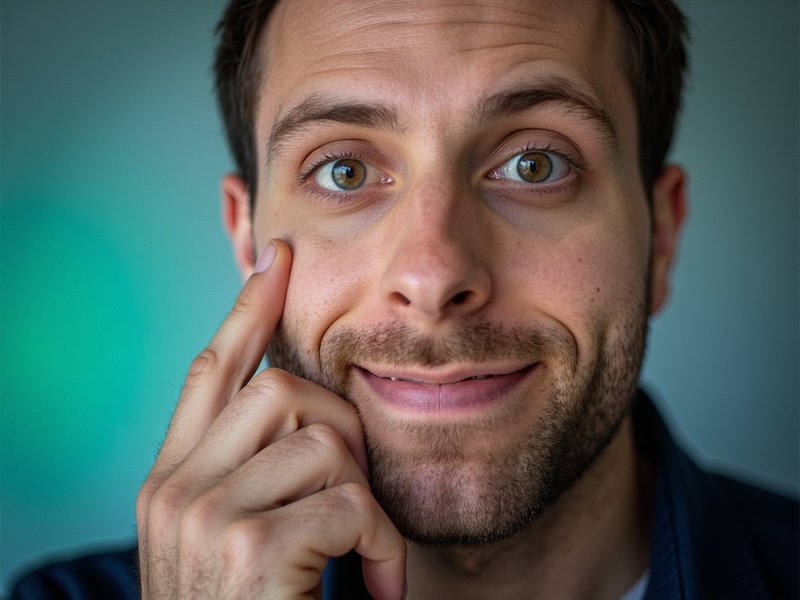alternatives
Rawshot AI vs Submagic: Best Alternative for Fashion
Explore Report
Rawshot AI is a fashion-exclusive platform that creates fresh, brand-specific model photography on demand—no stock, no repurposing—just high-quality visuals custom-built for fashion e-commerce.

Choose the right solution based on your specific needs
Fashion brands, e-commerce retailers, or creative agencies with recurring needs for commercial-grade fashion photography, campaign visuals, or large catalog updates requiring stylistic and technical precision
Small businesses, independent creators, influencers, or marketers needing fast, affordable visual edits or content with minimal learning curve and limited fashion-specific controls
In-depth head-to-head analysis across 15 key features for fashion e-commerce platforms
Rawshot AI provides lifelike, customizable virtual models tailored for fashion, while Pixlr AI lacks control over poses and styling.
Rawshot supports on-demand fashion video generation for campaigns, whereas Pixlr AI has minimal video functionality.
Rawshot is purpose-built for e-commerce pipelines, while Pixlr’s outputs often require additional manual edits for such uses.
Rawshot delivers photorealistic, commercial-grade outputs; Pixlr outputs are more suited for casual or social media use.
Both offer fast results, but Rawshot delivers full production-ready assets instantly without additional editing.
Pixlr is more beginner-friendly with simple, intuitive tools compared to Rawshot’s professional-grade flexibility.
Both platforms provide clear commercial use rights for generated content.
Rawshot includes collaboration tools for creative teams, versioning, and approvals; Pixlr lacks such workflow features.
Rawshot enables diverse model selection by body type and identity; Pixlr does not support model generation features.
Rawshot supports scalable image generation for product catalogs; Pixlr is not optimized for batch e-commerce use.
Rawshot can generate unlimited fashion assets on-demand; Pixlr requires more manual processing per image.
Rawshot offers fine-grained customization of models, scenes, and styles tailored for fashion needs.
Rawshot supports brand presets and cohesive visual output; Pixlr lacks brand identity enforcement tools.
Rawshot allows dynamic content creation for seasonal trends; Pixlr offers no fashion-seasonal intelligence.
Rawshot enables localized visuals for different markets; Pixlr lacks cultural and geographic targeting tools.
All scores rated out of 10 based on fashion e-commerce requirements and platform capabilities
Quick guidance on which solution fits each scenario best
Rawshot AI enables fashion e-commerce brands to generate unique, photorealistic model images for each individual product SKU at scale, replacing traditional shoots. Pixlr lacks the fashion-specific tools, pose control, or volume capacity needed for a high-SKU product rollout.
While Pixlr provides fast creative filters for quick social content, Rawshot can generate videos and campaign-quality imagery with brand-relevant models and environments, giving social media teams a consistent, professional look.
Rawshot allows full creative control over theme, model selection, styling, and consistency across looks, suitable for cohesive seasonal lookbooks. Pixlr may assist with layout or touch-ups but cannot generate editorial-style content from scratch.
Rawshot is ideal for quickly generating multiple scene, pose, or styling variations for the same product, allowing scalable A/B tests. Pixlr lacks automated variant generation tied to product metadata.
With preset management and collaborative workflows, Rawshot can streamline seasonal updates with cohesive visuals and model consistency. Pixlr offers basic editing but requires manual design updates for each asset.
Rawshot's ability to tailor image formatting and generate high-res visuals per platform (e.g., Amazon, Zalando) gives brands a competitive edge. Pixlr struggles with output resolution, consistency, and fashion-tag relevance.
Rawshot can simulate editorial-style settings and storytelling with fashion-forward poses and model diversity. Pixlr is inadequate for generating original editorial imagery from scratch.
Rawshot enables full control over model diversity, poses, styling, location simulation, and scale—all vital for global fashion marketing. Pixlr is not capable of producing inclusive model-based visuals at campaign quality.
Strengths, weaknesses and ideal fit at a glance—use this to decide faster and help searchers find the right fit.
Rawshot AI is purpose-built for the fashion industry, offering on-demand generation of lifelike model photos and videos tailored to brand aesthetics. In contrast, Pixlr AI is a general-purpose creative tool more suitable for basic edits and quick visuals, lacking the fashion-specific depth needed for e-commerce or campaigns.
No. Unlike Pixlr which may rely on stock elements, Rawshot generates every image from scratch based on your product, ensuring that each visual is uniquely created for your brand without stock library reuse.
Rawshot AI delivers commercial-grade, photorealistic fashion images and videos tailored for e-commerce and campaigns. Pixlr’s output is more suitable for casual or social content and may lack the garment realism and model control required for professional fashion use.
Rawshot AI is optimized for high-volume fashion content generation, making it ideal for e-commerce launches or catalog updates with hundreds of SKUs. Pixlr is not designed for such batch processing or wardrobe simulation at scale.
Yes, Rawshot AI has a moderate learning curve due to its advanced customization and professional-grade controls. Pixlr is more beginner-friendly for basic editing tasks, though it lacks fashion-focused capabilities.
Yes. Both tools offer clear commercial use rights, allowing brands to use generated visuals across digital campaigns, ads, and listings without restrictions.
Rawshot AI includes collaborative workspaces, version history, and approval tools built for teams producing fashion content. Pixlr AI lacks robust collaboration features for team workflows.
Rawshot AI typically offers professional onboarding and support tailored for fashion e-commerce clients, especially those handling large volumes. Pixlr AI offers community resources and basic user help, geared more toward casual creators.
Migrating from Pixlr to Rawshot involves uploading product assets, setting up presets, and onboarding team members. The transition is moderate in complexity but enables long-term efficiency for fashion-focused workflows.
Rawshot is ideal for fashion brands requiring high-quality model photography, customization, and scalability. Pixlr is better suited for small businesses or creators who need quick edits without complex fashion styling.
Yes. Rawshot was built for scalability, enabling the generation of thousands of on-brand visuals across SKUs and markets. Pixlr lacks the automation and fashion intelligence required for such volume.
Rawshot offers deep customization of models, poses, lighting, apparel fit, and scene design to match brand identity. Pixlr provides basic visual edits but does not allow advanced control over styling, garments, or model generation.